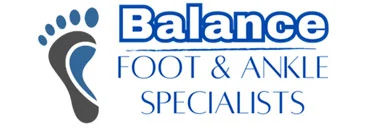
9 Ways To Tell If You Have Heart Disease or Arteriosclerosis?
🦶We recap the 9 Most common signs that you have clogged arteries & heart problems, check out these videos!🦶
Related Videos:
Best Diet & Foods for Clogged Arteries! https://youtu.be/bZKQEp2AHfc
How to know your heart is not well: https://youtu.be/qx4QAX2L4Fo
BIG Magnesium Mistake for Arteries & Heart: https://youtu.be/5DzSw8Ynhpo
Vitamin D, Vitamin K2, Calcium & Magnesium: https://youtu.be/esTz-_Mpm4Q
Best Nuts for Arteries: https://youtu.be/JavMP1NrboQ
Best Drink to Unclog Arteries: https://youtu.be/YOFrlc10E4E
Foods to Avoid after 50 Years Old: https://youtu.be/jLID96VA7j0
Chest pain or discomfort: This is one of the most common symptoms of heart problems. It may manifest as chest tightness, pressure, or a squeezing sensation (angina).
Shortness of breath: Difficulty breathing or feeling breathless, especially during physical activity or even at rest, could be a sign of reduced blood flow to the heart or lungs.
Fatigue: Unexplained fatigue or low energy levels can sometimes be associated with heart problems.
Heart palpitations: Sensations of irregular, pounding, or fluttering heartbeats may occur due to an underlying heart condition.
Dizziness or lightheadedness: Feeling faint, dizzy, or lightheaded can be a symptom of reduced blood flow to the brain, which may be linked to heart issues.
Leg pain or cramping: Pain, cramping, or weakness in the legs, especially during physical activity, may indicate peripheral artery disease (PAD), a condition where arteries in the legs become narrowed or blocked.
Erectile dysfunction (ED): In some cases, ED may be an early warning sign of underlying cardiovascular disease, as the arteries supplying blood to the penis may also become affected.
High blood pressure: Persistent high blood pressure can strain the heart and arteries, potentially leading to heart problems if left untreated.
Swelling in the extremities: Fluid retention or swelling in the legs, ankles, feet, or abdomen can be a symptom of heart failure, where the heart’s ability to pump blood efficiently is compromised.
It’s important to note that these signs can be caused by conditions other than clogged arteries or heart problems. If you experience any of these symptoms or have concerns about your heart health, it’s best to consult a healthcare professional for a proper evaluation and diagnosis. They can provide appropriate advice, conduct tests, and recommend the necessary treatments or lifestyle changes.
👉 Shoes 👈
Best Shoes:
Best Products: https://www.michiganfootdoctors.com/recommended-products/
📢Come See Us in Detroit, Michigan, Berkley Michigan; Bloomfield Hills, Michigan, Lansing Michigan; and Grand Blanc Michigan📢
If you are in Michigan, consider seeing us at our clinic: https://www.michiganfootdoctors.com/.
https://g.page/r/CaxJ9b-O6o27EAE
👉 LINKS 👈
Disclaimer: This video and description contain affiliate links, which means we may receive a commission if you click on one of the product links. I appreciate your support of this channel!
DISCLAIMER:
Dr. Tomasz Biernacki received his Doctor of Podiatric Medicine degree from Kent State College of Podiatric Medicine in 2013; he completed his Surgical Reconstructive Foot Surgery & Podiatric Medicine Residency in 2017; he completed 2 separate traveling Fellowships in Diabetic Surgery, Skin Grafting & Nerve Surgery. He is double board certified in Podiatric Medicine and separately in Foot & Ankle Surgery. His use of “doctor” or “Dr.” about himself solely refers to that degree. Dr. Biernacki is a licensed podiatrist in Michigan. This video is for general informational purposes only. It should not be used to self-diagnose and is not a substitute for a medical exam, cure, treatment, diagnosis, prescription, or recommendation. It does not create a doctor-patient relationship between Dr. Biernacki and you. It would be best if you did not change your health regimen or diet before consulting a physician and obtaining a medical exam, diagnosis, and recommendation. Always seek the advice of a physician or other qualified health provider with any questions regarding a medical condition.


